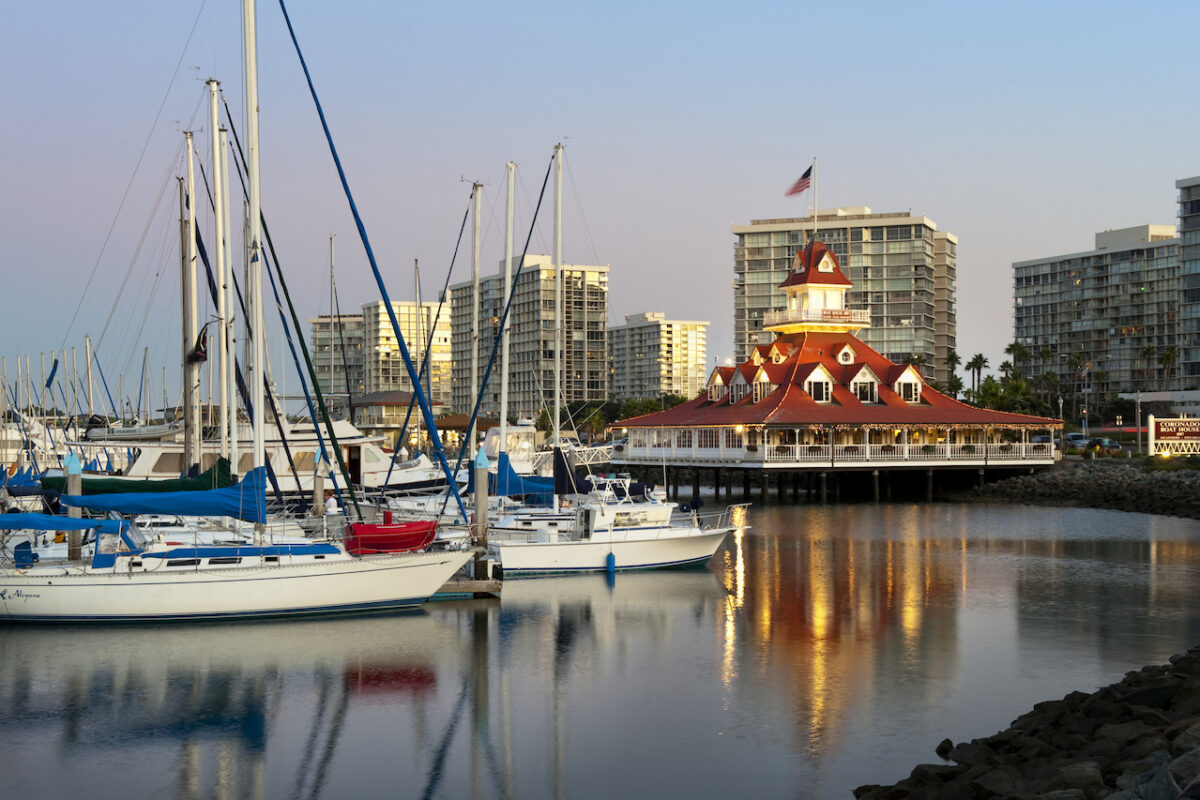Skift Take
Some destinations use large incentives to attract events with the promise of government-backed grants. Some detractors, however, argue that they’re ineffective — or so effective that they create unfair competition. Is there a place for so-called subvention as the industry edges towards recovery?
The challenges of the past year have been many: event cancellations, venue restrictions, and lockdowns, just to name a few. Now, after learning how to host digital events in record time, event organizers are faced with the new hurdle of adapting to hybrid formats. However, successful vaccine rollouts across much of the world have allowed many events to return to more large-scale in-person formats, and destinations are considering all the ways they can make their countries and cities a top choice for event organizers.
One strategy is the use of so-called subvention programs — government-funded grants in the form of cash incentives or indirect support. But how effective is this at attracting international events? And is it a recipe for creating unfair competition?
There are no clear right or wrong answers in this debate, and closer inspection of the issue will help to explain why. In this article, we’ll explore the use of subvention programs, with examples of current funding programs in three different countries (UK, Austria and Australia) to showcase varying approaches. In the process, we’ll discuss how these policies affect competition among destinations, and consider just how advantageous they really are for event organizers.
What is a subvention program?
A subvention is a grant of money in aid or support, usually provided by the government. When the term is used in the event industry, it usually refers to destination-based programs that award funding grants to event organizers in return for choosing their location as the event’s host site. Traditionally, these programs have been designed to out-compete other destinations in attracting events — and thereby drawing additional revenue to the city. More recently, destinations have also argued that the funds help to subsidize an industry struggling to stay afloat.
There are two types of subvention commonly used:
1. Monetary subvention: This refers to a financial grant paid to event organizers by the destination government.
2. Indirect subvention: This can include support in the form of venue or accommodation discounts, funding for civic receptions, coverage of transportation costs and contributions to marketing or sponsorship.
In order to be eligible for a subvention program, organizers need to meet the requirements set out by the destination that manages the program. The criteria for subvention varies by location; however, there are some general categories of consideration that apply across most programs:
1. Event type: Access to subventions can sometimes be limited to association conventions or business events that help to drive local economic priorities. In some locations, however, it is broader and includes other types events business events.
2. Number of international attendees: In order to be eligible your event may have to meet an attendee threshold. For example, Australia requires the event to attract at least 500 international visitors that will contribute significantly to the country’s economy.
3. Event size: Destinations may limit funding based on the size of your event. In Vienna, Austria, up to €3,000 ($3,400 USD) of funding is available to events with 50 participants. However, events with over 3,000 attendees can get up to €60,000 ($68,000 USD) in funding.
4. Duration: Normally the minimum stay supported by destinations is two nights.
5. Time of year: In some cities, financial support is limited to events within particular seasons of the year.
The amount of subvention you can receive is also highly dependent on the location of your event. Greater competition in Asia means countries generally offer higher levels of subvention than locations in Europe.
Does it work?
As with any type of program that involves many moving parts and variation from region to region, it can be difficult to determine whether subventions are actually effective in achieving their goals.
A 2019 report from UK research firm Cambridge Policy Consultants (CPC), The Potential Impact of Government Subvention Funding on International Business Events, cast doubt on their potential to attract events. Along with numerous interviews with industry experts and a survey of subvention programs across the world, the report analyzed how instrumental the UK’s Event Support Programme was in securing three case study events. The program supported the bid process, funded site visits, and supplied a cash sum to help each destination go toe-to-toe with their competitors. Two of the three events were secured, but only one of them was unlikely to have happened without the subvention offering from the UK tourist board. Even then, the subvention funding was a deciding factor because it was necessary to match a similar program in a competing city.
So are subvention programs an important incentive for organizers, simply a ‘nice to have’, or a formula for bidding wars among competing cities?
With the aim of gaining a better grasp on this question, the CPC report also included insights from interviews with over 300 business event organizers in five markets (France, Germany, Belgium, USA, and China). Conducted by VisitBritain in 2017, these interviews were designed to understand how event organizers pick destinations and what barriers they might face. They found the key influential factor for selecting a location was the proximity of the destination to their offices, customers, or prospects. Based on these factors, they then set an initial geographical scope (i.e. Europe, South-East Asia, the West coast of the USA).
Once they had the rough geographical area pinned down, there were three common factors that influenced their decision-making process:
1. Ease of access to the destination
2. Suitability of venues
3. Value for money
When ranked in terms of importance, subventions came out in seventh place among eight decision-making factors; however, some organizers did note that they see subventions as a part of the “value for money” factor. By and large, it seems that while offering a subvention might sometimes swing the vote between one city or another after the options have already been narrowed down, the majority of the time it bears little importance in the decision-making process.
Nevertheless, different dynamics applied when the organizer had less access to funds. It was found that associations, who are typically more price-sensitive, are heavily influenced by the availability of subventions. This finding raises the question as to whether the current economic climate might tip the scales for organizations and corporations that have traditionally been able to fund their events independently. VisitBritain’s research was conducted before the pandemic. Are B2B event organizers now just as much in need of financial support as association planners?
The report also found that expectations for funding vary across cultures. 47 percent of French- and Belgian-based associations consider subventions to be important. However, just across the channel, UK DMOs admitted that the UK is uncompetitive compared to cities such as Paris and Vienna when it comes to attractive subventions and incentives. Despite this shortcoming, the UK still remains an attractive destination for many international event organizers, especially in the B2B sector.
There are at least two underlying factors to consider when analyzing these regional differences. On the one hand, subvention programs in neighboring cities can set a new bar for minimum funding. As mentioned earlier, event organizers often narrow their choices down to a specific region. If one city creates a subvention program, it puts pressure on the surrounding locations to do the same. A second factor to take into account is London’s position as both a financial center and an English-speaking city, which automatically makes it more attractive to North American business.
At least from a destination’s perspective, there is no one-size-fits-all approach to subventions.
ARGUMENTS FOR AND AGAINST SUBVENTION
There are convincing arguments both for and against subvention programs, and the prevailing view will often depend on the specific region in question.
According to Tracy Halliwell, Director of Tourism and Convention Bureau for London & Partners, it’s more important to consider factors that influence an event’s own money-making potential. With this in mind, destinations may want to consider how they can make their cities more alluring by investing in state-of-the-art conference facilities, improving transportation links, and pricing competitively.
“I don’t think it [subvention] does create an unfair advantage. Due to pressures on the public purse, London isn’t able to offer big subventions like other destinations. However if event planners bring events to London, they can probably get a higher ROI because they’ll be able to attract more delegates, a higher level of speakers, and potentially a higher level of sponsors…If the event’s not going to work in your destination unless it has [subvention] money underwriting it, it’s not the right destination.”
Tracy Halliwell, Director of Tourism and Convention Bureau, London & Partners
On the other hand, if the funding is in fact a deciding factor for some event organizers, the business deals that follow could lead to further economic activity, in turn funneling money back into the very resources that make a destination more attractive.
Since the Vienna Meeting Fund was launched earlier this year, 242 international and national congresses and corporate conferences have already received preliminary funding approval from the Vienna Convention Bureau (VCB), amounting to nearly €2.5 million ($2.8 million USD) — over half the total funding pot. According to projections from the Vienna Tourist Board, these events will add approximately €371 million ($421 million USD) in economic activity to the city by the end of 2023.
For its part, the Vienna Tourist Board argues that their city’s subvention program is not only a boon to the economy, but also a deciding factor in this period of limited resources and economic hardship:
“Besides all the benefits the meeting destination Vienna has to offer event planners, the funding scheme for sure is an additional argument. We continue to see a significant interest from international meeting planners and event organizers. The demand confirms the importance of supporting the industry in this challenging time. In addition, the interim results of the Vienna Meeting Fund show that the funding measure has a strong leverage effect both for tourism and for other industries in the sector’s orbit, such as supplier companies — it is therefore a holistic support for the destination.”
Examples of subvention programs by country
To gain a better understanding of how support varies from nation to nation, we will compare subvention programs in the UK, Austria, and Australia.
UNITED KINGDOM
Business Events Growth Programme
While London itself may not have a dedicated subvention program, the UK as a whole does have some funding in place. It is, however, designed primarily to fund marketing initiatives rather than to cover the logistical costs associated with hosting an event.
VisitBritain (the tourist board of the UK) offers three types of support for organizers under the Business Events Growth Programme:
1. Bid Enhancement and Support: This funding is made available for the purpose of bidding and winning new international business events for the UK. Funds can be used to support a number of promotional activities, including live streaming, social media campaigning, sales and marketing activity, bid booklet production, and translation costs associated with the bidding process.
2. International Delegate Growth: This part of the program is designed to support the growth, development, and internationalization of business events in the UK. Funds here can be used to create activations, attract high-profile speakers and international delegates, and fund PR activities and webinars.
3. Government Advocacy: This initiative supports the UK’s business event industry by adding value via the participation of high-ranking government officials. This assistance can be provided in the form of live attendance by a government Minister, or through other tokens of government participation such as a keynote speech, a letter of support, or a welcome video.
Eligibility
Applications are accepted from a variety of organizations (including event organizers, convention bureau/destination management organizations, universities or associations). Events can receive up to £20,000 ($27,000 USD) per event/bid.
AUSTRIA
In May 2021, Vienna launched The Vienna Meeting Fund to provide additional funding for organizers looking to host events in the city between 1 May 2021 and 31 December 2023.
The program is divided into three tiers of funding, each with its own requirements. The rules of the program are primarily designed to ensure that any funding awarded will in turn funnel money back into Vienna’s local economy. Its secondary purpose is to help offset the costs associated with hybrid events.
“The decision to fund hybrid events for the first time is part of the Vienna Tourist Board’s response to the current situation faced by meeting planners. It provides supplementary funding to help cover the additional costs associated with hosting parallel virtual and on-site meetings. It is designed to support planners and thereby certainly represents an incentive to hold physical — or hybrid — events that would otherwise have been entirely digital or even canceled.”
Vienna Tourist Board
The Vienna Meeting Fund outlines their requirements as follows:
1. Tier 1 (Vienna Event): All three tiers must meet the requirements of this initial category, which by itself offers the lowest coverage available. This level of funding requires that the event is hosted in Vienna, some form of payment is made to a local venue, the event is attended by at least 50 onsite participants, and it lasts a minimum of four hours.
2. Tier 2 (Overnight Stays): In addition to meeting the criteria outlined above, events applying to this tier must also generate overnight stays for hotels in Vienna. More specifically, the number of overnight stays generated by the event must be equivalent to 10 percent of the total number of onsite participants in 2021, 30 percent in 2022, and 50 percent in 2023.
3. Tier 3 (Hybrid Event): If the organizer can demonstrate that they are taking on additional expenses in order to host the event in a hybrid format, they qualify for funding under this third tier.
Eligibility
In contrast to the UK program’s broader categories of eligibility, Vienna’s funding program has outlined the specific types of events that it will cover. These include association congresses and meetings, as well as corporate events and meetings deemed to “add value for Vienna as an innovation hub and a business location”. The fund’s website further explains that “[p]urely (corporate) evening events such as galas, award ceremonies or Christmas parties, as well as exhibitions, fairs and cultural or sporting events, are not eligible for funding.”
Provided the eligibility criteria is also met for all three tiers outlined above, organizers could receive up to €60,000 ($68,000 USD) — more than double the amount offered by the UK.
AUSTRALIA
While the UK and Austria benefit from being in Europe, which remains one of the world’s top regions for association headquarters and a major hub for association events, Australia’s geographic isolation makes it a less popular destination for international events. The international market accounted for only 4 percent of Australian conference delegates in 2019, while interstate travelers accounted for 17 percent. For this reason, the bulk of Australian event funding tends to focus on supporting events for domestic audiences — and the most recent addition to their funding is explicitly designed to offset the effects of the pandemic.
With that said, Australia also recently expanded a pre-existing subvention program dedicated to international events. One influencing factor is the country’s proximity to Asia, a region with some of the world’s most well-funded subvention programs.
Business Events Grant (local subsidy)
Australia’s $50 million AUD Business Events Grants Program provides Australian businesses with financial support of $10,000 to $250,000 AUD ($7,400 to $184,000 USD) to cover eligible costs for their participation as buyers or sellers at pre-approved business events (i.e. exhibitions, conferences, and conventions) from 1 January 2021 to 31 December 2021. This grant was delivered as part of Australia’s Covid-19 relief and recovery fund.
Eligibility
This fund is used to support the promotion of Australian business capabilities. Therefore they are prioritizing events with a trade element, bringing buyers and suppliers together. Although all of the funding has already been allocated, a full list of eligibility requirements can be found here.
Australian Boosting Business Events Bid Fund
To remain competitive against Asia’s growing appeal for international events — and its top subvention programs — Australia continues to offer the Boosting Business Events Bid Fund, which it first launched in 2018. Following the easing of restrictions and Australia’s remarkable handle on the pandemic, the country has put another $3 million AUD into the fund to support bids for international events.
Interestingly, rather than presenting this additional funding as a necessary measure to buoy a struggling industry, the Australian government is framing it as a chance to seize opportunities created by the pandemic. “Because Australia’s economic and health response to COVID-19 has been among the best in the world, Australia is well placed to attract more international events when travel resumes,” said Dan Tehan, Federal Minister for Trade, Tourism, and Investment.
Echoing the Vienna Meeting Fund’s PR material, Tehan also noted that Australia’s Boosting Events Bid program has “helped attract 40 international events to Australia worth approximately $411 million [AUD, or $302 USD] in economic value” since it first launched.
Limiting factors for event organizers
While there may be conflicting opinions on whether subvention programs hurt or benefit destinations, it is also important to consider the effects on event organizers.
Though subventions can be useful for minimizing the overall costs of events for organizers, the report by Cambridge Policy Consultants outlined three common limitations to bear in mind.
1. The application and review process can often be drawn out, which makes it difficult to meet bidding deadlines. Some destinations aren’t very clear at the beginning about what information is required. This leads to ongoing questions which can delay the decision-making process.
2. Some funding is only available during the bidding year. Destination management organizers, who sometimes initiate subvention bids in support of local events, benefit from more flexibility around when the funds can be spent. For example, they often have to wait until an upcoming event has been completed before they can begin marketing the next major event in their region, and time-limits can compromise their ability to direct funds towards promotion.
3. Lastly, applying for funding can be a time-consuming process. Event organizers have to decide whether or not the time spent applying for funding is actually worth the monetary value being sought, particularly if for those who have a small team with limited resources. Based on a sample of 19 respondents, the report found that the average level of support per event was approximately £16,000 ($21,500 USD).
The second of these three points, however, is primarily applicable to marketing-focused initiatives like the UK’s Business Events Growth Programme. For subvention funding designed to offset venue and hybrid event technology costs, time limitations may only be a concern for those who need to plan events over a year in advance.
IN CONCLUSION
The aim of providing subvention programs is to reduce barriers to organizing and participating in events, either directly through cash subsidies or indirectly through investment in sectors that support the event industry. After two years of cancellations and restrictions, the industry has suffered heavily and subventions could provide a helping hand to ease some of the burdens in organizing events. This is clearly a motivating factor behind Australia’s Business Events Grants Program, as well as the Vienna Meeting Fund’s efforts to offset the added costs associated with hybrid formats.
However, if the goal is to attract more business events and international delegates to a destination, the Cambridge Policy Consultants’ research suggests that subvention support does not have a significant influence on the destination decision-making process for most organizers. It remains to be seen whether current economic hardships may influence B2B event planners to place more importance on subvention funding — or alternatively, whether it will be all that much more vital for the destination’s local economy to be among the world’s top performers.
While particular organizers (associations) and countries (France and Belgium) have a clear preference for subvention programs, they have not traditionally been a deciding factor for most international business event planners. In the past, the most influential factors in the decision-making process have been proximity to customers and prospects, ease of access, suitable venues, and good value for money.
Given the current climate of uncertainty, destinations should consider keeping the support open and available to those who need it while investing in transport links, and affordable, state-of-the-art conference facilities to make their destination an unbeatable choice for organizers.





